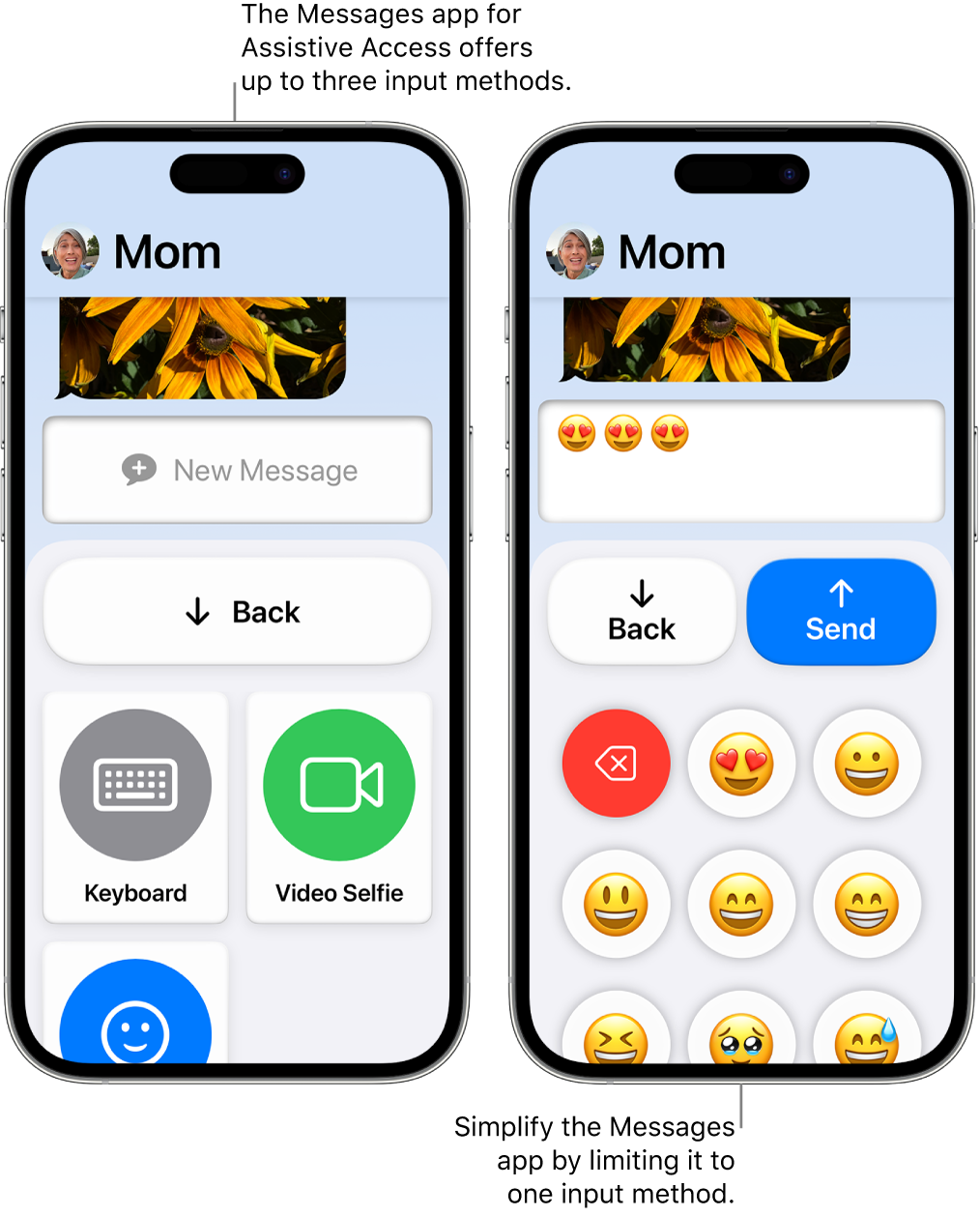Set up Messages for Assistive Access on iPhone
A person using Assistive Access on iPhone can use the Messages app ![]() to communicate with family, friends, and trusted supporters. They can use an emoji-only keyboard or send video messages to communicate with audio or visuals rather than text. They can also use a standard text keyboard to send written messages. You can add the Messages app when you set up Assistive Access, or anytime after.
to communicate with family, friends, and trusted supporters. They can use an emoji-only keyboard or send video messages to communicate with audio or visuals rather than text. They can also use a standard text keyboard to send written messages. You can add the Messages app when you set up Assistive Access, or anytime after.

Add the Messages app
Exit Assistive Access if it’s active.
Go to Settings
 > Accessibility > Assistive Access.
> Accessibility > Assistive Access.Tap Manage Apps, then tap
 next to Messages.
next to Messages.Choose options for the app (described in the table below), including who the person using Assistive Access can exchange messages with.
Messages options
Option | Description | ||||||||||
|---|---|---|---|---|---|---|---|---|---|---|---|
Receive Messages From | Allow the person using Assistive Access to receive messages from everyone, from all contacts in the Contacts app, or from selected contacts only. If you choose Selected Contacts, add each contact under Send Messages to Selected Contacts (below). Note: The option to receive messages from everyone is available in iOS 17.1 or later. | ||||||||||
Send Messages to Selected Contacts | Choose the specific contacts the person using Assistive Access can send messages to. To add people to the Contacts app, see Add and use contact information in the iPhone User Guide. | ||||||||||
Tap to Hear Message | Allow the person using Assistive Access to tap messages to hear them read out loud. This may be useful for people who prefer audio communication rather than text. Note: Tap to Hear Message isn’t available in all languages. See the Apple Support article Languages supported by VoiceOver. | ||||||||||
Conversation Details | Show details about messages in a conversation, such as dates and delivery status. | ||||||||||
| Send text messages using a standard keyboard. | ||||||||||
| Send video messages using the front-facing camera on iPhone. This may be useful for people who prefer audio or visual communication rather than text. | ||||||||||
| Send emoji messages using an emoji-only keyboard. This may be useful for people who prefer visual communication rather than text. | ||||||||||
Tip: Simplify Messages by turning on just one input method (like Video Selfie or Emoji). After the person using Assistive Access chooses who they want to send a message to, they can start creating a message without needing to choose an input method first.